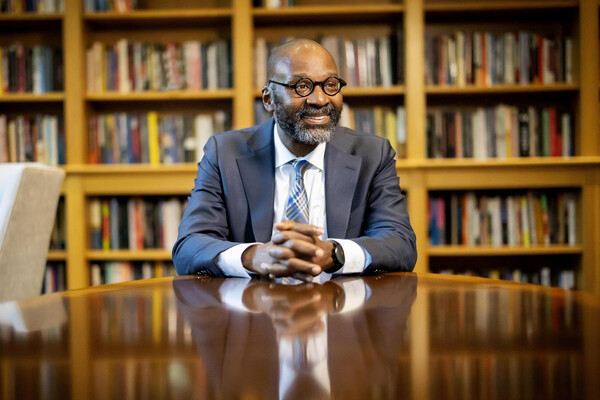
Griffin Pitt, right, works with two other student researchers to test the conductivity, total dissolved solids, salinity, and temperature of water below a sand dam in Kenya.
(Image: Courtesy of Griffin Pitt)
PHILADELPHIA — The Brookings Institution tops the U.S. list in a first-ever ranking of the world’s best think tanks.
“The Global Go-To Think Tank” index, based on a worldwide survey of hundreds of scholars and experts, is reported in the January/February 2009 issue of Foreign Policy magazine available at www.foreignpolicy.com/story/cms.php?story_id=4598.
The compilation is the work of James G. McGann, assistant director of the University of Pennsylvania International Relations Program and director of the Think Tanks and Civil Society Program at Penn.
The Council on Foreign Relations and the Carnegie Endowment for International Peace follow Brookings among top U.S. think tanks, and the Rand Corporation is No. 4.
With a $60.7 million annual budget and programs ranging from the Middle East to global finance to urban strategy, Brookings also tops think tanks with the “Most Impact on Public Policy Debates.”
Chatham House, the International Institute for Strategic Studies and the Stockholm International Peace Research Institute top the list of “Top 20 Non-U.S. Think Tanks.”
“Unlike leading U.S. think tanks,” McGann writes, “Chatham House churns out its ideas on international economics and regional studies with just $12.4 million per year.”
There are currently more than 5,500 think tanks in nearly 170 countries. McGann has sorted them into five groups: policymakers, partisans, phantoms, scholars and activists.
Organizations such as the Rand Corporation and the Urban Institute are policymakers.
“These think tanks enjoy a competitive advantage over their rivals when it comes to government contracts and research,” McGann writes. “They have the know-how and PR skills that ministers, bean counters and bureaucrats seek.”
McGann characterized Russia’s Institute for Democracy and Cooperation and Uzbekistan’s Center for Political Studies as “notable phantom think tanks designed to look like non-governmental organizations but are, in fact, arms of the government. They’ve emerged as a favorite strategy for authoritarians to mask their diktas as flourishing civil society.”
Washington’s Heritage Foundation ranks No. 2 for “Impact on Public Policy Debates,” largely due to an in-depth understanding of current policy issues, an effective marketing strategy and proximity to the U.S. seat of power.
Cato Institute is rated No. 1 for “Innovative Ideas,” and the European Council on Foreign Relations is “Best New Think Tank.”
Cato’s libertarian stance, once viewed as fringe, is now considered mainstream.
The European Council on Foreign Relations, with Nobel Peace Prize laureate Martti Ahtisaari and former German Foreign Minister Joschka Fischer, ranks first among think tanks that have emerged during the past five years.
Copies of the full report that provides all the rankings can be downloaded at Penn’s International Relations website at www.sas.upenn.edu/irp/documents/2008_Global_Go_To_Think_Tanks.pdf.

Griffin Pitt, right, works with two other student researchers to test the conductivity, total dissolved solids, salinity, and temperature of water below a sand dam in Kenya.
(Image: Courtesy of Griffin Pitt)

Image: Andriy Onufriyenko via Getty Images

nocred

Provost John L. Jackson Jr.
nocred